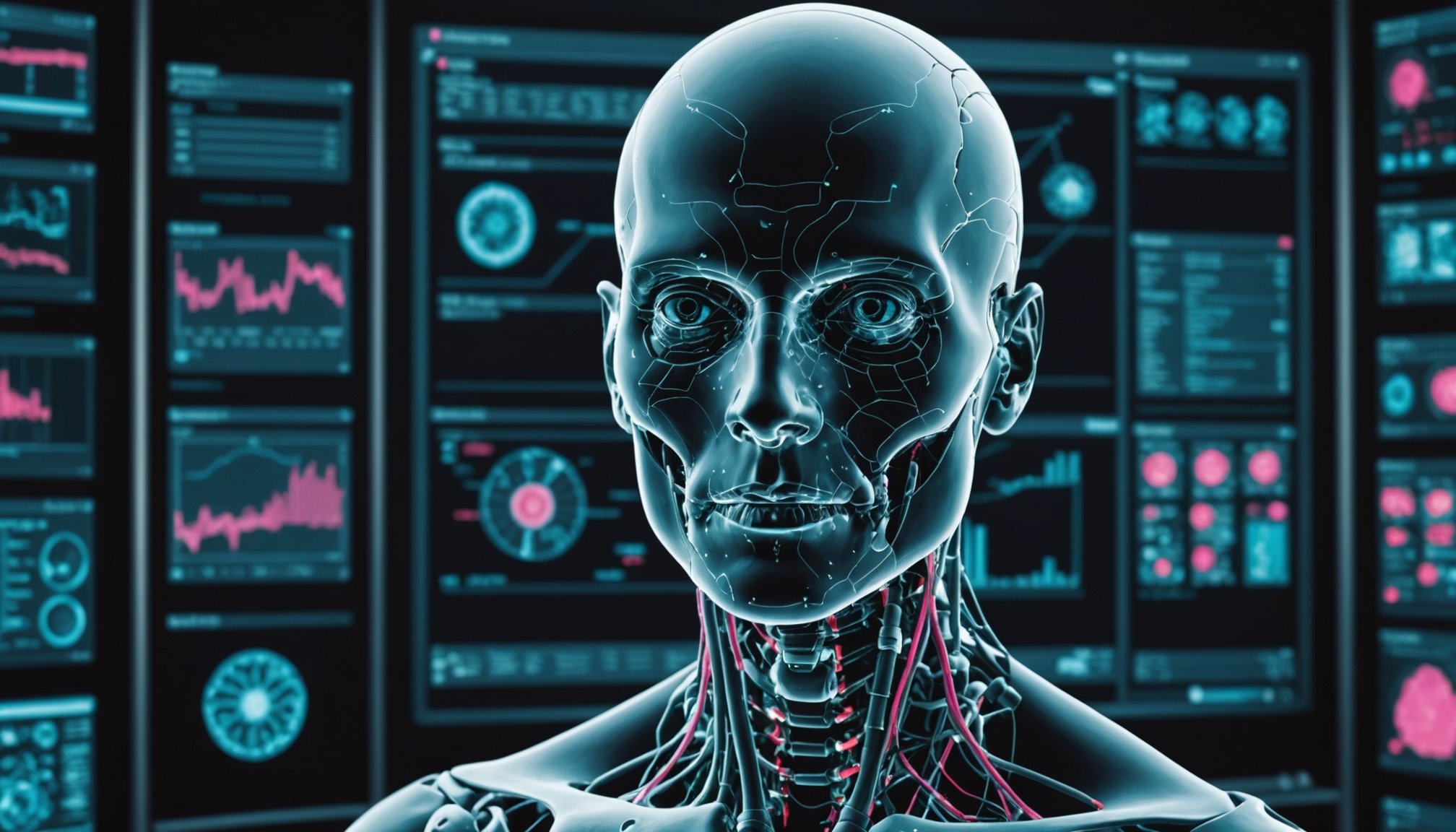Overview of Machine Learning in Oncology
In modern oncology, machine learning has emerged as a transformative force, significantly reshaping patient care and treatment strategies. By automating data analysis, machine learning aids oncologists in deciphering complex biological datasets, expediting the identification of patterns crucial for personalized cancer treatment. This technology empowers physicians to tailor treatments to individual patient profiles, enhancing efficacy while minimizing side effects.
The advancements in healthcare, particularly through machine learning, are revolutionizing cancer treatment by integrating large datasets from various sources like clinical trials and genetic sequences. This integration facilitates more accurate predictions of disease progression and response to treatment, optimizing patient outcomes. Furthermore, machine learning’s role extends beyond treatment to augment diagnostic procedures, ensuring early and more precise detection of cancer.
Also read : Unlocking supply chain efficiency: how uk retailers can harness data analytics
The impact on healthcare efficiency is profound. Machine learning systems streamline workflow processes, reduce oncologists’ administrative burdens, and improve resource allocation in medical settings. These advancements not only improve patient satisfaction but also enhance the overall efficiency of healthcare services, making it a vital component in contemporary oncology practices.
In summary, machine learning is not only advancing personalized cancer treatments but also enhancing the entire healthcare ecosystem, paving the way for more effective and efficient patient care.
Also to read : Unlock hlr lookup: ensure real-time validity of mobile numbers
Current Applications of Machine Learning in Cancer Treatment
Machine learning applications are transforming cancer treatment technology through their innovative use in predictive analytics and personalized medicine. By analyzing vast amounts of clinical data, machine learning improves predictions related to treatment responses and outcomes. Utilizing techniques like neural networks and deep learning, these systems detect subtle patterns within complex datasets, leading to more accurate treatment predictions. Successful implementations are evident in cases where predictive modeling has identified effective treatment strategies, reducing side effects and enhancing patient quality of life.
Imaging and Diagnostics
In diagnostic imaging, machine learning enhances the accuracy and resolution of medical images. Algorithms trained on extensive image datasets have demonstrated improved diagnostic accuracy in early cancer detection. For instance, models detecting anomalies in mammograms or CT scans provide clinicians with a second, highly reliable opinion. This technological advancement doesn’t just improve the diagnostic process but significantly raises the chances of detecting cancer at an earlier, more treatable stage.
Drug Discovery and Personalized Medicine
In drug discovery, machine learning identifies potential therapies by analyzing genetic data to personalize treatments. Techniques such as clustering and decision trees explore genetic similarities among patients, tailoring therapies precisely to individual genetic compositions. These advancements exemplify how machine learning drives personalized medicine, ultimately contributing to more successful and targeted cancer treatments.
Case Studies in Personalized Cancer Treatment
Exploring the realm of personalized oncology through cancer treatment case studies provides invaluable insights into the potential of machine learning (ML) in healthcare. One standout example involves a breast cancer research project where ML was employed to analyze vast data sets, ultimately identifying unique molecular patterns. This enabled the development of customized treatment strategies specifically tailored to the patient’s genetic makeup, significantly improving treatment efficacy.
Another poignant case comes from a lung cancer study where predictive modeling based on genetic sequencing was used. ML tools predicted the response of patients to immune checkpoint inhibitors, allowing oncologists to administer individualized therapies that were previously not considered viable. This approach not only increased survival rates but also enhanced patient quality of life by minimizing unnecessary interventions.
These real-world applications underscore the effectiveness of machine learning-infused treatments in oncology. The carefully curated algorithms, designed to process complex datasets rapidly and accurately, facilitate a deeper understanding of the molecular characteristics of individual tumors. This fosters advancements in personalized cancer treatment, ensuring that therapy regimens are as precise and effective as possible, ultimately paving the way for a future where cancer treatment is deeply personalized and crafted to individualic needs.
Expert Opinions and Insights
Delving into the opinions of oncology experts provides valuable machine learning insights and reveals exciting directions for cancer treatment innovations. Interviews with leading specialists illuminate a transformative shift in oncological practices. Many experts highlight that the integration of machine learning facilitates more accurate and prompt diagnoses, improving overall patient care. This technology empowers oncologists to predict treatment responses and tailor interventions with impressive precision.
Technologically, the landscape is evolving. Experts foresee machine learning algorithms becoming more sophisticated, offering enhanced predictive capabilities and integrating seamlessly into daily clinical operations. They predict a future where artificial intelligence not only supports during decision-making but anticipates complex medical scenarios, presenting proactive solutions.
On the research front, academic contributions play a critical role. Recent studies indicate a surge in collaborative efforts between tech companies and medical institutions, fostering significant advancements. For instance, ongoing research is honing algorithms that process vast genetic data, streamlining personalized treatments. These studies serve as a beacon, guiding how machine learning can be further harnessed within oncology.
In this rapidly shifting field, machine learning stands as a cornerstone of innovation, poised to redefine the way cancer is diagnosed, treated, and managed in the future.
Future Prospects of Machine Learning in Oncology
Machine learning is poised to revolutionize the future of oncology through emerging trends that promise to push the boundaries of personalized cancer treatment. As machine learning trends evolve, they offer new potential for healthcare innovations. Driven by enhanced algorithmic capabilities and vast datasets, future systems are expected to achieve unprecedented diagnostic precision and treatment efficacy.
Emerging technologies like quantum computing may further amplify machine learning’s impact by processing complex biochemical interactions at heightened speeds. The increased computational power will allow for real-time genomic analysis, optimizing treatment personalization to an individual’s DNA in ways previously unimaginable.
Despite its promise, the evolution of machine learning in oncology presents challenges. Ethical considerations, particularly concerning data privacy and algorithmic bias, must be addressed to ensure equitable access and trust in technology. Additionally, integrating AI into existing medical frameworks necessitates significant changes in regulatory and operational protocols.
Looking ahead, the vision for the next decade includes sophisticated predictive models capable of anticipating complex disease progressions and treatment outcomes. This foresight promises not only to enhance survival rates but also to improve the quality of life for cancer patients, marking a transformative leap in healthcare deliverables.









